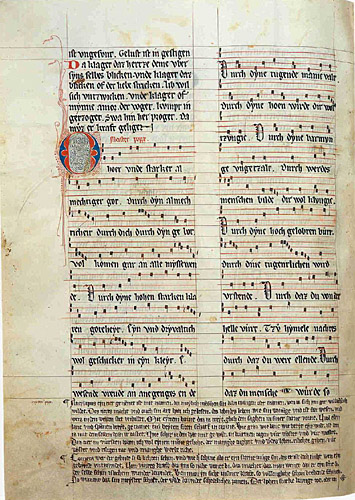Spruchdichtung on:
[Wikipedia]
[Google]
[Amazon]
 Spruchdichtung or Sangspruchdichtung is the German term for a genre of
Spruchdichtung or Sangspruchdichtung is the German term for a genre of
 Spruchdichtung or Sangspruchdichtung is the German term for a genre of
Spruchdichtung or Sangspruchdichtung is the German term for a genre of Middle High German
Middle High German (MHG; or ; , shortened as ''Mhdt.'' or ''Mhd.'') is the term for the form of High German, High German language, German spoken in the High Middle Ages. It is conventionally dated between 1050 and 1350, developing from Old High ...
sung verse. An individual work in this genre is called a Spruch (plural ''Sprüche''), literally a "saying", and may consist of one or more strophe
A strophe () is a poetic term originally referring to the first part of the ode in Ancient Greek tragedy, followed by the antistrophe and epode. The term has been extended to also mean a structural division of a poem containing stanzas of var ...
s.
While closely associated with the lyric genre Minnesang
(; "love song") was a tradition of German lyric- and song-writing that flourished in the Middle High German period (12th to 14th centuries). The name derives from '' minne'', the Middle High German word for love, as that was ''Minnesangs m ...
, its theme is not love, but rather
the Spruch treated predominantly of rational, didactic and pragmatic issues, including, for example, socio-political commentary, topics related to moral or religious teaching and philosophy, practical wisdom, biographical material, praise of patrons, begging and much else besides.Where the texts offer general moral comment, they may also be considered
gnomic poetry
Gnomic poetry consists of meaningful sayings put into verse to aid the memory. They were known by the Greeks as gnomes (cf. the Greek adjective γνωμικός (''gnomikos'') "appertaining to an opinion or aphorism"). A ''gnome'' was defined by t ...
, while works directed at particular personages or issues are rather political poetry
Political poetry brings together politics and poetry. According to "The Politics of Poetry" by David Orr, poetry and politics connect through expression and feeling, although both of them are matters of persuasion. Political poetry connects to pe ...
.
The most important medieval collection of Sprüche is the Jenaer Liederhandschrift
The (German, the "Jena song manuscript") is a 14th-century manuscript containing lyrics and melodies to songs in Middle High German. The majority of the lyrics belong to the genre of Spruchdichtung and, with 91 melodies, the manuscript is the sin ...
(MS J), which also has a large number of Spruch melodies.
The Poets
The main poets working in this genre are: * * Herger *Walther von der Vogelweide
Walther von der Vogelweide (; ) was a Minnesänger who composed and performed love-songs and political songs ('' Sprüche'') in Middle High German. Walther has been described as the greatest German lyrical poet before Goethe; his hundred or s ...
* Bruder Wernher
Bruder Wernher (fl. 13th century) was an Austrian poet who wrote Middle High German '' Sprüche'', social or political songs, as opposed to love songs.
''Bruder'' (brother) is not a name, but a description indicating that he was a lay brother, fr ...
* Der Marner
Der Marner was a 13th-century itinerant poet and singer in the Middle High German language, whose work is preserved in the Codex Manesse. He was born in Swabia and obviously enjoyed a good school education. He wrote some of his works in the servic ...
* Konrad von Würzburg
Konrad von Würzburg (c.1220-1230 – 31 August 1287) was the chief German poet of the second half of the 13th century.
As his name suggests, Konrad hailed from the Franconian town of Würzburg. By the standards of medieval poets, his l ...
* Heinrich von Meißen (Frauenlob)
* Reinmar von Zweter
Notes
References
* * * Middle High German literature Musical terminology {{Medieval-music-stub